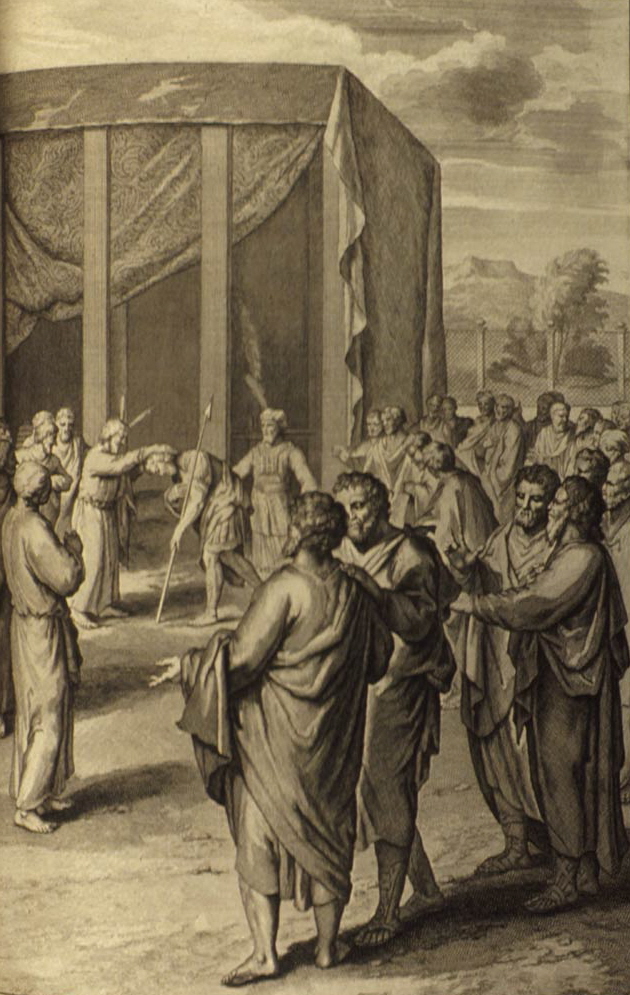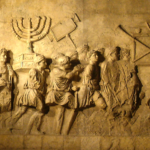Joshua is an unsavory character, and even the old Talmudic scholars tended to gloss over him as if embarrassed by his brutality. There is little of the prophecy, and none of the poetry, that makes other books in the Scriptures so attractive.
His Story
His story is a catalog of slaughters and executions in a long and unremitting series of wars and sieges as God commands him to take possession of the Promised Land, following the Israelites’ exodus from Egypt under the leadership of his predecessor Moses.
 Unfortunately, the Promised Land is already occupied, and its indigent peoples are each given an ultimatum in turn: leave, stay as subjects, or fight. Most choose the last option, resulting in scenes of carnage worthy of the Assyrians.
Unfortunately, the Promised Land is already occupied, and its indigent peoples are each given an ultimatum in turn: leave, stay as subjects, or fight. Most choose the last option, resulting in scenes of carnage worthy of the Assyrians.
Joshua is a brilliant field general his tactics studied even today by Israeli commanders – but completely ruthless. One of his own men, together with his entire family, is stoned to death for looting. Four kings caught hiding in a cave are blocked up until the battle is won and then impaled alive. All the inhabitants of resisting cities are put to the sword.
Joshua does have some saving graces and can be seen as a victim of circumstances
And yet Joshua does have some saving graces and can be seen as a victim of circumstances: the will of God as it manifests itself in the unfolding of history. He hadn’t wanted the job in the first place, but once he’d taken it on he was unswerving in his duty. When he died, with the land safely settled, nobody came to his funeral: a war leader in peacetime is something of an embarrassment, and Joshua didn’t fit in with the way the Israelites viewed themselves. But the dirty work had to be done, and in a world full of forces hostile to what they regarded as their birthright, Joshua did it.
Some other religions that preach peace and reconciliation descend into the opposite later in their careers. The Israelis did it at the beginning of theirs, and have kept to the defensive strategy ever since.






